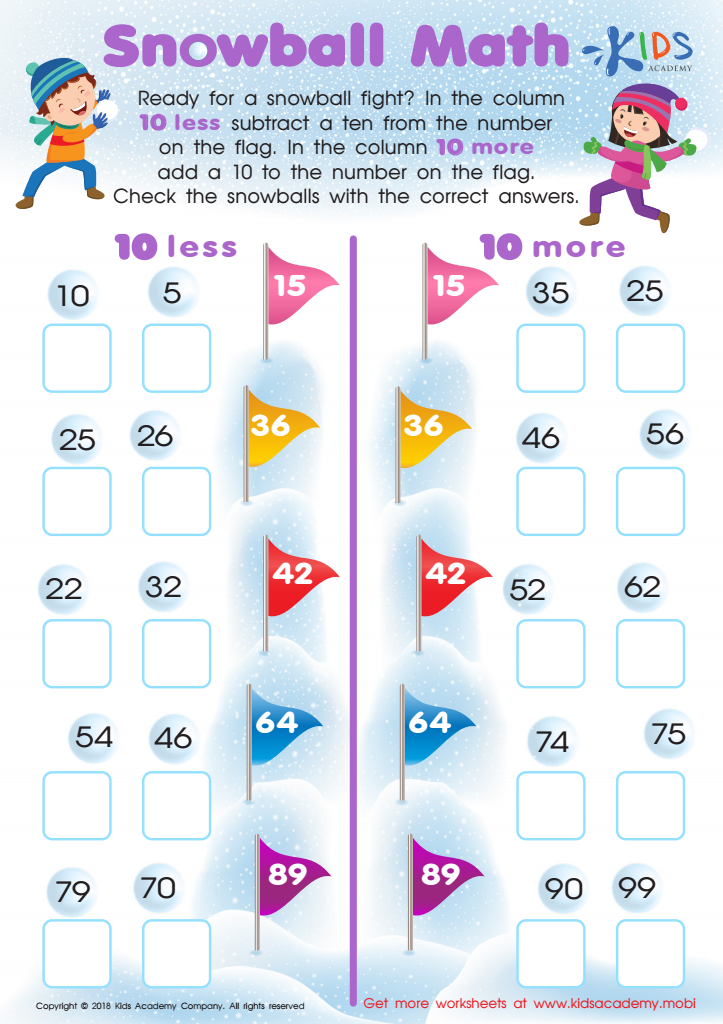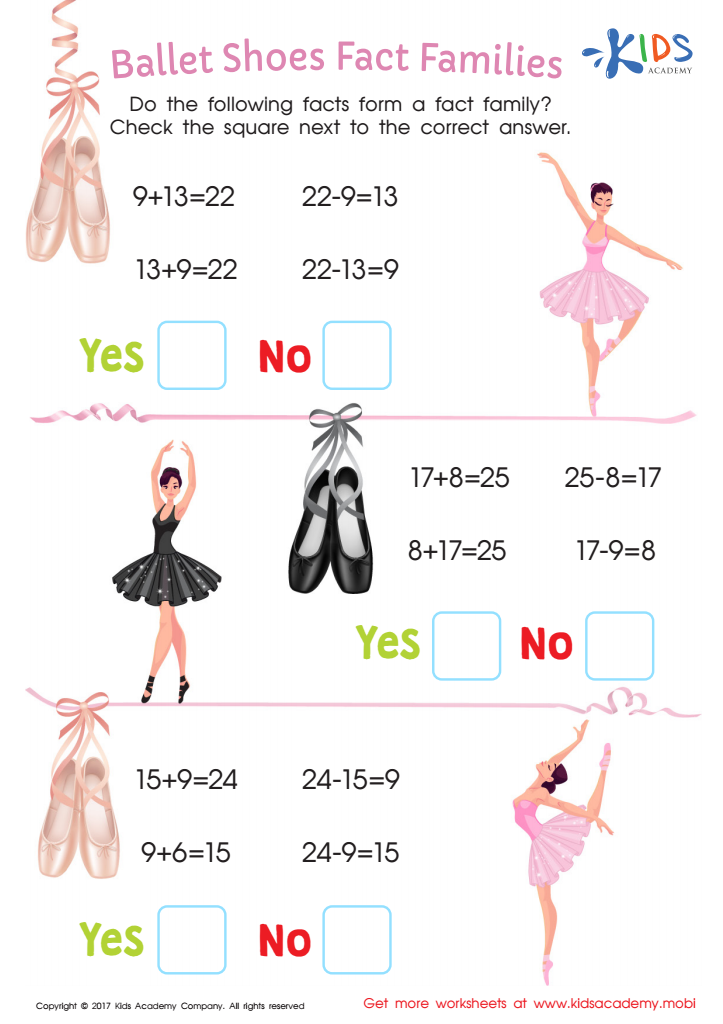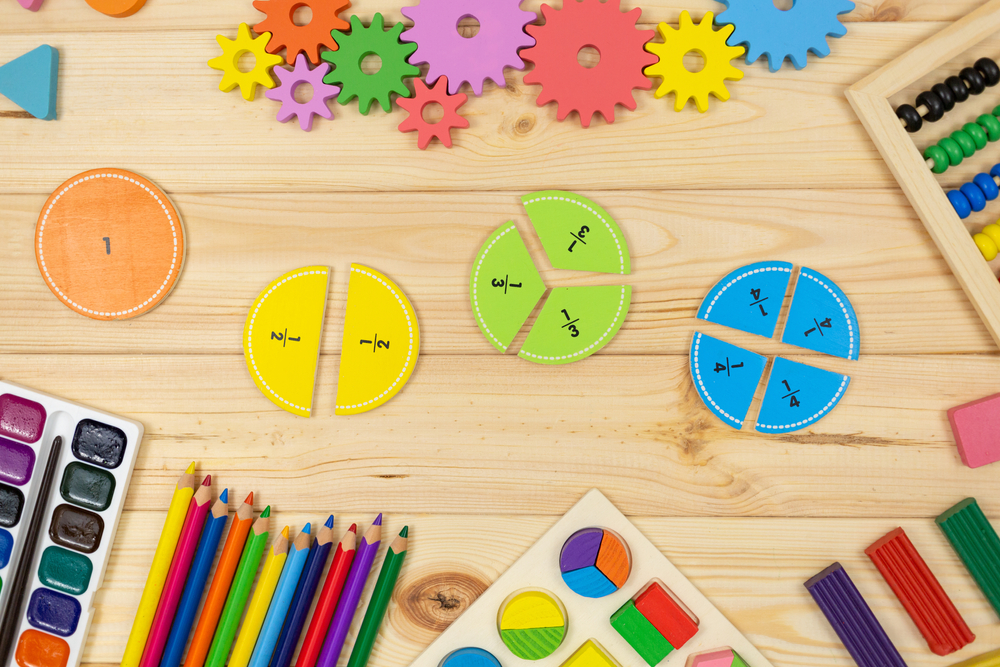Improving mental math Worksheets for Ages 6-7
3 filtered results
-
From - To
Unlock your child's potential with our "Improving Mental Math Worksheets for Ages 6-7"! Expertly designed to enhance essential math skills, these worksheets offer engaging exercises that sharpen mental calculation abilities. Fun and interactive activities make learning enjoyable, helping young learners grasp key concepts like simple addition, subtraction, and number patterns. Ideal for classroom use or at-home practice, our worksheets encourage critical thinking and boost confidence in math. Empower your child to excel in math and have a solid foundation for future learning. Explore our worksheets today and watch your child's math prowess soar!


Snowball Math Worksheet


Ballet Shoes Fact Family Printable
Improving mental math skills for children aged 6-7 is crucial for several reasons. Firstly, mental math helps build a strong foundational understanding of numerical concepts and relationships, which is essential for future mathematical learning. Early proficiency in basic arithmetic creates confidence and reduces math anxiety, making children more comfortable with advanced topics later on.
Children in this age group are typically developing their cognitive abilities rapidly. Introducing mental math exercises enhances their memory, concentration, and problem-solving skills. It encourages logical thinking and the ability to make quick decisions based on available information, skills that are valuable beyond mathematics, including in everyday life situations.
Moreover, mental math fosters a sense of achievement and boosts self-esteem. When children solve problems independently and accurately, they experience a sense of accomplishment that translates into a positive attitude towards learning. Additionally, engaging in mental math activities strengthens neural connections, promoting overall cognitive development.
Incorporating mental math into daily routines, whether at home or school, also provides opportunities for parents and teachers to engage meaningfully with children, nurturing supportive learning environments. Ultimately, prioritizing mental math for young children sets the stage for lifelong academic success and critical thinking abilities.

 Assign to the classroom
Assign to the classroom





.jpg)







